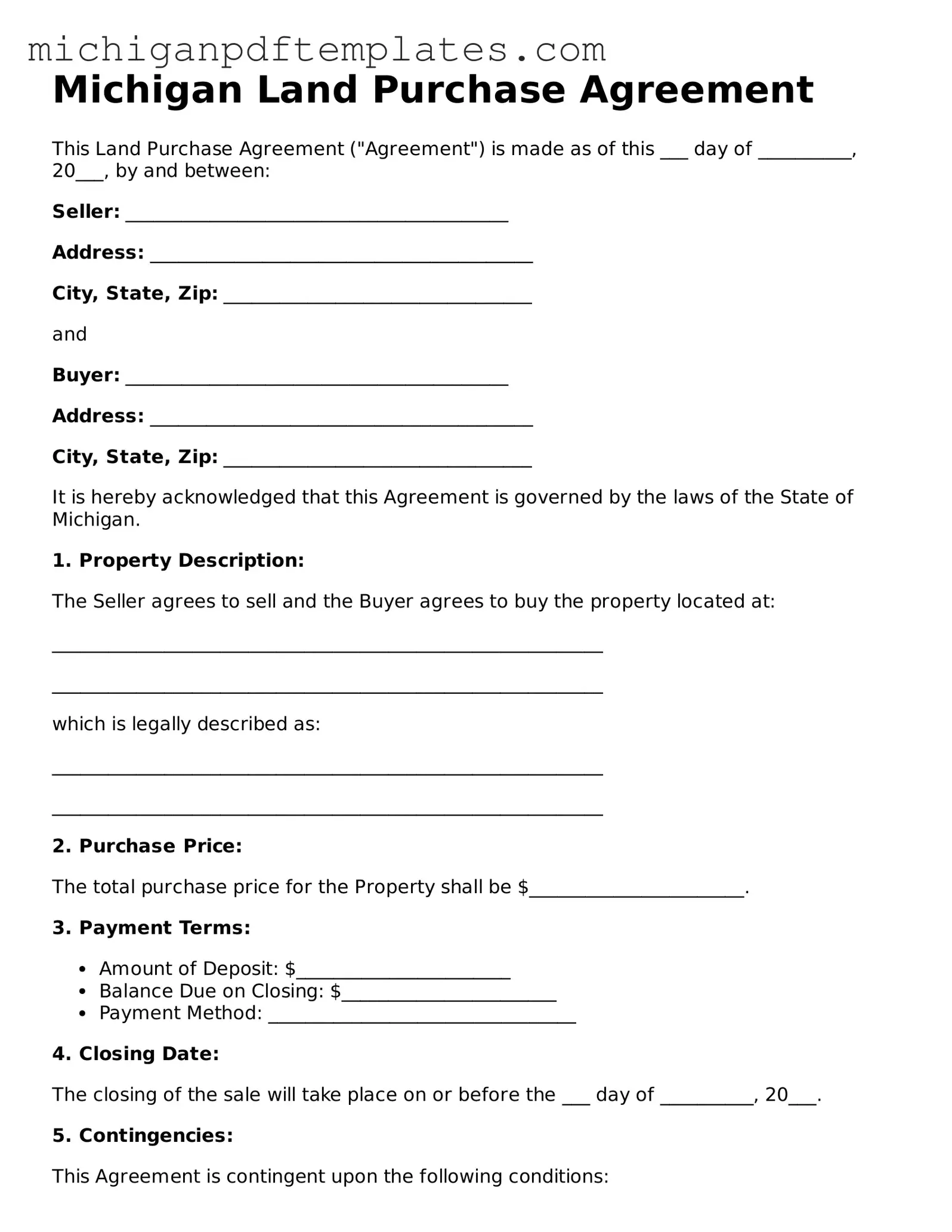Legal Michigan Land Purchase Agreement Template
The Michigan Land Purchase Agreement form is a legal document that outlines the terms and conditions for the sale of real property in Michigan. This agreement protects both the buyer and seller by clearly defining their rights and responsibilities throughout the transaction. Ensure a smooth process by filling out the form below.
Get Your Form Now

Legal Michigan Land Purchase Agreement Template
Get Your Form Now

Get Your Form Now
or
▼ PDF Form
Finish this form quickly and move on
Fill in and complete Land Purchase Agreement online quickly.